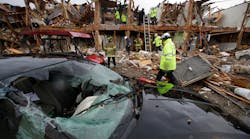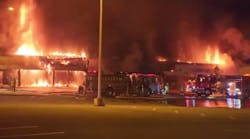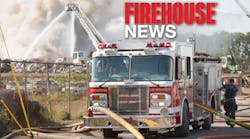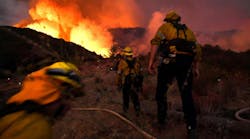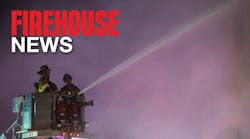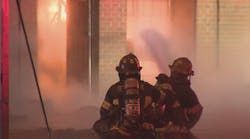April 19--Firefighters receive intensive training to prepare for the dangers of a fire or accident scene, but there's always the chance for a curveball to be thrown their way, two Eau Claire firefighters said Thursday.
Firefighters were reminded of the dangers of their job in the wake of an explosion at a fertilizer plant in Texas late Wednesday that killed as many as 15 people and injured at least 160. Authorities believe as many as five firefighters died in the blast.
While firefighters have responded to large fires such as an explosive blaze at WRR Environmental Services on Eau Claire's south side in June 2007 that shot flames hundreds of feet into the air, smaller house and residential garage fires often are less predictable, Eau Claire Fire Department Lt. Shawn Abrahamson said.
Abrahamson, a 16-year Fire Department veteran, recalls a residential fire in which hundreds of rounds of ammunition were found after the blaze was extinguished. Fortunately, none of the bullets exploded, he said.
He also remembers a garage fire in which a boat attached to the ceiling by a rope wasn't noticed by firefighters until after the fire was put out.
"If that rope would have burned, we could have been crushed," he said. "It's the unknown, not knowing what you're getting yourself into."
Abrahamson and Scott Burkart, the department's deputy chief for fire prevention and EMS, talked about firefighter safety in light of Wednesday's fertilizer plant explosion in Texas that killed as many as 15 people and injured at least 160. Authorities believe as many as five firefighters died in the blast.
"I think about the families, what they are going through. It's no different than what happened at 9/11, that feeling of helplessness," Abrahamson said.
To him, losing a firefighter is like losing a member of his own family, Abrahamson said.
"We're just a tightknit group of people," he said. "It's like your second family."
Training for danger
A majority of the training firefighters receive covers survival techniques, Burkart said. They train for the dangerous situations they may encounter.
"Structure fires are one of the higher-risk things we do," Burkart said. "Vehicle accidents are another one, rescuing people on roadways while the highway is still active."
Even getting killed in a traffic crash while responding to or returning from a fire is one of the top five causes of death nationally for on-duty firefighters, he said.
"We know the risks that are out there, and we take steps through equipment and training to minimize that," Burkart said.
For Eau Claire firefighters, scenario-based training focuses primarily on structure fires, high-angle and water rescues, building collapses and hazardous chemicals.
"Those are the things we concentrate on because those are our higher-volume type of calls," he said.
Addressing personal safety needs have to be covered fully by firefighters during their training sessions, Burkart said.
"Because when you're out on a call, with the adrenaline, all you're doing is reacting. You don't have time to think about it," he said. "It's instinct. And that's learned in training."
Eau Claire firefighters also study structure types so they know how different kinds of buildings will react while on fire. "It allows us to get ahead of that particular type of fire," Burkart said.
"There's also many variables that can occur during an incident, the things we can't predict," he said. "And that's where we have to rely on our experience."
Preparing for their personal safety starts the second firefighters hear the incident call at the fire station, Abrahamson said.
"You initiate your action plan and you consider the weather conditions, time of day, route, type of facility and whether chemicals are involved," he said. "Luckily, we do a lot of pre-planning so we know what we are getting ourselves into."
Routine incidents, such as traffic crashes and fires, "are organized chaos," Abrahamson said.
"Each one of us has a role and a responsibility," he said. "It's just instinct. We train so much on it that when we get to it, we just respond to it naturally."
Holtz can be reached at 715-833-9207, 800-236-7077 or [email protected].
Copyright 2013 - The Leader-Telegram, Eau Claire, Wis.
